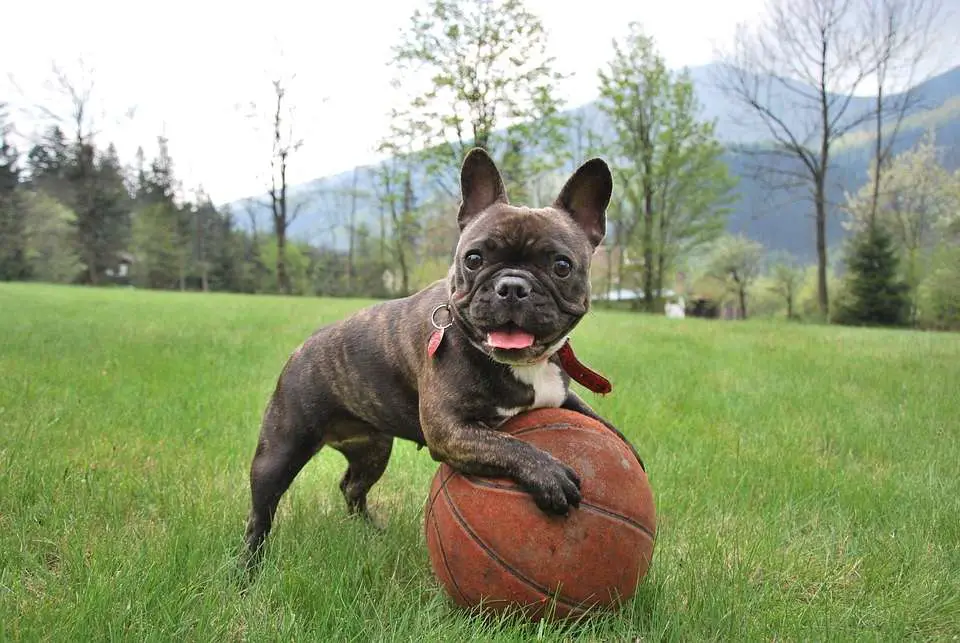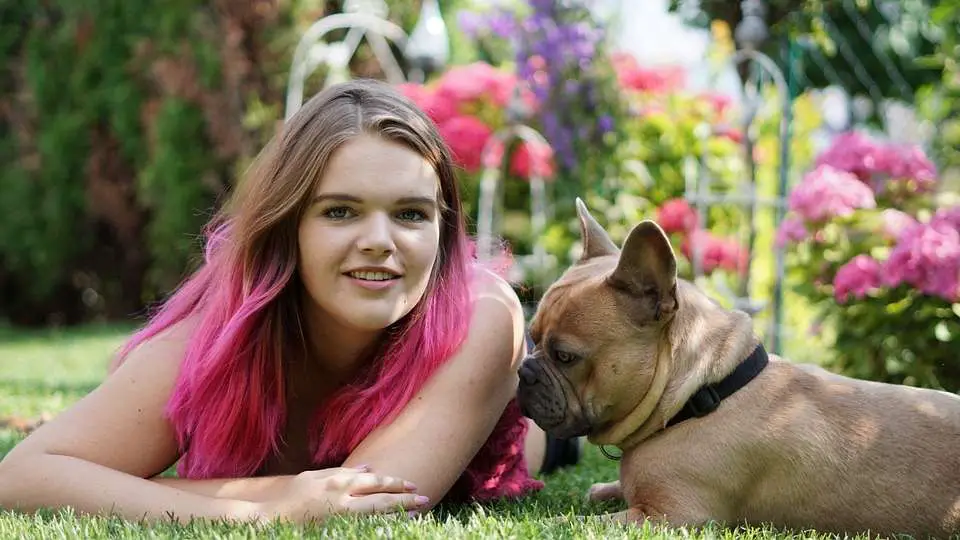Table of Contents
French Bulldogs have gained immense popularity among pet owners in the United States. Their unique appearance, friendly nature, and adaptability to various living situations make them a sought-after breed.
If you’re considering adding a French Bulldog to your family, it’s essential to understand the care and maintenance they require. In this comprehensive guide, we will explore the ease of caring for French Bulldogs and provide valuable insights for pet owners in the USA.
Why French Bulldogs?
French Bulldogs, or “Frenchies” as they are affectionately called, have captured the hearts of Americans across the country. Their distinctive bat-like ears, compact size, and adorable wrinkled face make them an irresistible choice for dog lovers.
According to the American Kennel Club, French Bulldogs consistently rank among the top breeds in popularity in the USA.
The Pet-Owning Audience in the USA:
Pet ownership is a cherished aspect of American culture, with millions of households embracing the joys of having a furry companion. In the USA, people from all walks of life, including families, singles, and seniors, embrace the idea of pet ownership.
Dogs, in particular, hold a special place in the hearts of Americans, providing companionship, love, and loyalty. As such, it’s crucial for potential pet owners to understand the specific needs and requirements of the breed they are considering.
Whether you’re a first-time dog owner or experienced with canine companions, the decision to bring a new furry family member home should be well-informed. French Bulldogs, with their charm and distinct characteristics, often pique the interest of prospective pet owners.
General Description of French Bulldogs

French Bulldogs, known for their distinct appearance and charming personalities, are small-sized companion dogs with a big heart. Here’s a closer look at their appearance, size, and temperament:
- Appearance: French Bulldogs have a unique and instantly recognizable appearance. They have a sturdy build with a compact and muscular body. Their most distinctive features are their large, round eyes, bat-like ears that stand erect, and a wrinkled face with a short, pushed-in muzzle. They have a smooth, short coat that comes in various colors, including brindle, fawn, cream, and pied.
- Size: French Bulldogs are classified as a small-sized breed. On average, they stand around 11 to 12 inches (28 to 30 cm) tall at the shoulder and weigh between 16 to 28 pounds (7 to 13 kg). Their compact size makes them well-suited for various living arrangements, including apartments and houses.
- Temperament: French Bulldogs have a delightful personality that endears them to their owners. They are known for their affectionate and playful nature. They thrive on human companionship and enjoy being a part of the family. Frenchies are generally friendly, sociable, and get along well with children and other pets. They have a reputation for being excellent companions and lap dogs, providing comfort and loyalty to their owners.
Why French Bulldogs Popular in the USA
French Bulldogs have experienced a remarkable surge in popularity in the United States. They have consistently ranked among the top breeds in terms of popularity according to the American Kennel Club (AKC). This rise in popularity can be attributed to several factors:
- Adorable Appearance: French Bulldogs’ distinct appearance, with their expressive eyes and adorable facial features, has captured the hearts of Americans. Their unique and lovable looks make them incredibly appealing to a wide range of individuals and families.
- Adaptability: French Bulldogs are known for their adaptability to different living situations. Their small size and low exercise requirements make them suitable for both urban and suburban environments. They can thrive in apartments as well as larger homes, making them a popular choice for individuals and families with varying lifestyles.
- Affectionate Nature: French Bulldogs are renowned for their affectionate and loving personalities. They form strong bonds with their owners and are known to be loyal and devoted companions. Their friendly and sociable nature makes them excellent family pets and companions for individuals of all ages.
The popularity of French Bulldogs continues to grow, with more and more households across the USA welcoming these delightful dogs into their lives. However, it’s important to understand that popularity doesn’t always equate to ease of care.
Are French Bulldogs Easy To Take Care Of?

Why French Bulldogs hard to take care of? Owning a French Bulldog can have its challenges. Due to their brachycephalic (short-nosed) structure, they are prone to respiratory issues, which can affect their breathing.
They can also be prone to obesity if not given the right amount of exercise and a healthy diet. Additionally, French Bulldogs may require extra attention and care due to their sensitive skin, allergies, and potential for joint problems.
Care and Maintenance of French Bulldogs
A. Daily Care Routine
To ensure the well-being and happiness of your French Bulldog, it’s essential to establish a daily care routine that addresses their grooming, dental, and exercise needs. Let’s explore these aspects in detail:
1. Grooming Needs:
French Bulldogs have a short, smooth coat that requires regular grooming to keep them clean and healthy. Here are the grooming tasks to include in your daily care routine:
- Brushing: Brush your Frenchie’s coat at least once a week to remove loose hair and keep their coat shiny. This also helps in preventing matting.
- Bathing: French Bulldogs have sensitive skin, so it’s recommended to bathe them once every 2 to 3 months or as needed. Use a mild dog shampoo and ensure thorough drying to prevent skin issues.
- Nail Trimming: Trim your Frenchie’s nails regularly, as long nails can cause discomfort and difficulty in walking. If you’re not confident in doing it yourself, seek assistance from a professional groomer or veterinarian.
2. Dental Care:
Proper dental care is crucial for the overall health of your French Bulldog. Include the following dental care practices in your daily routine:
- Brushing Teeth: Use a dog-specific toothbrush and toothpaste to brush your Frenchie’s teeth regularly, ideally on a daily basis. This helps prevent tartar buildup, gum disease, and bad breath.
- Regular Check-ups: Schedule routine dental check-ups with your veterinarian to ensure your Frenchie’s teeth and gums are healthy. Professional cleanings may be recommended to maintain optimal oral hygiene.
3. Exercise Requirements:
While French Bulldogs are not highly demanding in terms of exercise, they still require regular physical activity to keep them fit and mentally stimulated. Incorporate the following exercise routines into your daily care schedule:
- Daily Walks: Take your Frenchie for daily walks to provide them with mental stimulation and physical exercise. Aim for at least 20 to 30 minutes of moderate exercise per day.
- Playtime: Engage your Frenchie in interactive play sessions indoors or outdoors to keep them active and entertained. Use toys, fetch games, or puzzle toys to stimulate their minds.
By following a consistent daily care routine that includes grooming, dental care, and exercise, you can ensure that your French Bulldog stays healthy, happy, and well-maintained.
Read: Why is My French Bulldog Restless? Understanding the Possible Causes
B. Health Considerations
French Bulldogs, like many dog breeds, are prone to certain health issues that require special attention. Understanding these health considerations is essential for providing the best care for your French Bulldog. Let’s explore some of the common health concerns associated with the breed:
1. Brachycephalic Syndrome and Respiratory Issues:
French Bulldogs have a brachycephalic (short-nosed) structure, which can lead to respiratory challenges. This condition, known as brachycephalic syndrome, can cause difficulties in breathing, especially in hot or humid weather.
It’s crucial to monitor your Frenchie’s breathing and ensure they have access to a well-ventilated environment. Avoid exposing them to excessive heat or strenuous activities that may strain their breathing. Regular visits to the veterinarian can help identify any respiratory issues and provide appropriate management strategies.
2. Skin Allergies and Sensitivities:
French Bulldogs are prone to skin allergies and sensitivities. They may develop allergies to certain food ingredients, environmental factors like pollen or dust mites, or even specific grooming products. Common signs of skin allergies include itching, redness, rashes, and excessive scratching.
If you notice any of these symptoms, consult with your veterinarian to determine the underlying cause and develop an appropriate treatment plan. This may involve dietary adjustments, using hypoallergenic grooming products, or implementing environmental changes.
3. Potential Joint Problems:
Due to their stocky build, French Bulldogs are susceptible to joint problems such as hip dysplasia and intervertebral disc disease. These conditions can cause discomfort, lameness, and reduced mobility.
To minimize the risk of joint issues, it’s important to provide your Frenchie with a balanced diet to maintain a healthy weight. Regular exercise that is appropriate for their breed and age, such as moderate walks and controlled play, can help keep their joints strong.
Additionally, providing a comfortable and supportive sleeping environment, such as a orthopedic bed, can help alleviate pressure on their joints.
By being aware of these health considerations, you can take proactive measures to address and manage any potential issues that may arise.
Regular veterinary check-ups, maintaining a healthy lifestyle, and promptly addressing any symptoms or concerns will contribute to the overall well-being of your French Bulldog.
C. Nutritional Needs
Proper nutrition plays a vital role in the overall health and well-being of your French Bulldog. Providing a well-balanced diet tailored to their specific needs is crucial. Let’s explore the nutritional aspects you should consider:
1. Recommended Diet:
Feeding your French Bulldog a high-quality dog food that is specifically formulated for their age, size, and activity level is essential. Look for dog food that contains real meat as the primary ingredient, along with a balance of carbohydrates, healthy fats, vitamins, and minerals. Consider the following guidelines for their diet:
- Protein: Ensure the dog food provides adequate protein content to support muscle development and maintenance.
- Healthy Fats: Look for sources of healthy fats such as fish oil or flaxseed, which can contribute to a healthy coat and skin.
- Carbohydrates: Opt for complex carbohydrates like sweet potatoes or whole grains, which provide sustained energy.
- Portion Control: Follow the feeding guidelines provided by the dog food manufacturer and adjust the portion size based on your Frenchie’s activity level and body condition. Overfeeding can lead to obesity, which can pose additional health risks.
2. Common Dietary Restrictions or Sensitivities:
Some French Bulldogs may have specific dietary restrictions or sensitivities. It’s important to be aware of any food allergies or sensitivities your Frenchie may have. Common allergens can include ingredients like grains (wheat, corn, soy), certain proteins (beef, chicken), or artificial additives.
If you suspect your Frenchie has a food sensitivity, work with your veterinarian to conduct an elimination diet or allergy testing to identify the specific allergen and adjust their diet accordingly. Specialized diets, such as grain-free or limited ingredient diets, may be recommended for those with dietary restrictions.
Remember to provide fresh water at all times, and avoid feeding your Frenchie table scraps or foods that are toxic to dogs, such as chocolate, grapes, onions, or caffeine.
By ensuring a well-balanced diet and meeting their specific nutritional needs, you can support your French Bulldog’s growth, energy levels, and overall health.
D. Training and Socialization
Training and socialization are vital aspects of raising a well-behaved and well-adjusted French Bulldog. By starting early and being consistent, you can shape their behavior and ensure they become a cherished companion. Let’s delve into the key components of training and socialization:
1. Importance of Early Training and Socialization:
Early training and socialization are crucial for French Bulldogs to develop good manners, adaptability, and confidence. It is during their early months that they are most receptive to learning and experiencing new things.
By exposing them to various environments, people, and animals, you can help them grow into a well-rounded and sociable dog. Proper training and socialization contribute to their overall happiness, reduce the risk of behavioral problems, and create a strong bond between you and your Frenchie.
2. Basic Obedience Commands and House Training:
Teaching basic obedience commands and house training is essential for your French Bulldog’s safety and the harmony of your household. Start with these fundamental commands:
- Sit: Teach your Frenchie to sit on command. This command helps establish control and can be useful in various situations.
- Stay: Train them to stay in one place until given permission to move. This command is crucial for their safety and control.
- Come: Teach your Frenchie to come when called. This command is vital for their safety and allows you to maintain control during outdoor activities.
- House Training: Establish a consistent routine for house training your Frenchie. Use positive reinforcement techniques, such as rewards and praise, to encourage proper elimination behavior and teach them where to go.
3. Socializing with People and Other Animals:
French Bulldogs are naturally sociable dogs, but proper socialization is necessary to ensure they are comfortable and friendly in various social settings. Expose your Frenchie to different people, including adults, children, and strangers, in a positive and controlled manner.
Similarly, introduce them to well-behaved dogs and other animals to help them develop appropriate social skills and prevent fear or aggression.
Remember to use positive reinforcement techniques, such as treats, praise, and play, to reward and reinforce good behavior during training and socialization sessions.
By investing time and effort into training and socializing your French Bulldog, you can shape their behavior and foster a well-behaved and socially adept companion. In the next section, we will discuss important factors that can impact the care of French Bulldogs, helping you make an informed decision about bringing one into your home.
Factors that Impact French Bulldog Care

A. Time Commitment
Owning a French Bulldog requires a significant time commitment to ensure their well-being and happiness. It’s important to consider the following aspects when evaluating the time you can dedicate to caring for a French Bulldog:
1. Regular Exercise:
French Bulldogs may not require intense exercise like some high-energy breeds, but they still need daily exercise to maintain their physical and mental health.
Plan for daily walks, play sessions, and mental stimulation activities to keep them active and engaged. This typically involves dedicating at least 30 minutes to an hour each day for exercise and playtime.
2. Grooming and Coat Care:
French Bulldogs have a short coat that requires regular grooming to keep it clean and healthy. Brushing their coat, cleaning their facial wrinkles, and trimming their nails are essential grooming tasks.
Additionally, their ears should be checked and cleaned to prevent infections. Budget time for grooming sessions, typically once a week, to ensure their coat and skin remain in good condition.
3. Attention and Companionship:
French Bulldogs thrive on human companionship and need to feel included as part of the family. They are social dogs and enjoy spending time with their owners. Be prepared to provide them with attention, affection, and mental stimulation through play, training, and quality time spent together.

They may not do well if left alone for long periods, so consider your schedule and availability to provide them with the companionship they need.
Understanding and fulfilling these time commitments is crucial for the overall well-being and happiness of your French Bulldog. Assess your lifestyle, work schedule, and availability to ensure you can dedicate enough time and attention to meet their needs.
B. Financial Considerations
When considering a French Bulldog as a pet, it’s important to be aware of the financial commitments involved. Owning a French Bulldog comes with certain expenses that should be factored into your budget. Here are some key financial considerations:
1. Cost of Purchasing a French Bulldog:
French Bulldogs are a popular breed, which can contribute to their higher price compared to some other dog breeds. The cost of purchasing a French Bulldog can vary depending on factors such as breeder reputation, lineage, and geographic location.
On average, the price range for a French Bulldog puppy can be anywhere from $1,500 to $3,500 or more. It’s important to do thorough research and find a reputable breeder who prioritizes the health and well-being of their dogs.
Read: Why You Shouldn’t Breed French Bulldogs? 6 Good Reasons
2. Veterinary Care Expenses:
French Bulldogs require regular veterinary care to ensure their health and prevent potential health issues. This includes routine vaccinations, check-ups, and preventive treatments for parasites such as fleas and ticks.
Veterinary expenses can also include spaying or neutering, dental cleanings, and potential treatments for common breed-specific health conditions. It’s recommended to set aside a budget for routine veterinary care and be prepared for any unexpected medical expenses that may arise.
3. Other Expenses:
Apart from veterinary care, there are other recurring expenses to consider when owning a French Bulldog:
- Food: Quality dog food tailored to their nutritional needs is essential. The cost will depend on the brand, size of the dog, and dietary requirements.
- Grooming Supplies: This includes brushes, shampoos, conditioners, and other grooming tools specific to your Frenchie’s needs.
- Toys and Accessories: French Bulldogs enjoy playtime and mental stimulation. Budget for toys, chew treats, and accessories such as a comfortable bed and leash.
- Training Classes: Professional training classes or private sessions can be beneficial for socialization and obedience training. Consider the cost of enrolling your Frenchie in training programs if desired.
By being prepared for the financial responsibilities associated with owning a French Bulldog, you can ensure that you can provide them with the care they need throughout their life.
C. Lifestyle Compatibility
When considering adding a French Bulldog to your family, it’s essential to assess how well their characteristics and needs align with your lifestyle. Here are some key points to consider regarding lifestyle compatibility:
1. Adaptability to Different Living Situations:
French Bulldogs can adapt well to different living situations, including apartments and houses. Their moderate size and relatively low exercise requirements make them suitable for apartment living, as long as they receive regular exercise and mental stimulation.
However, it’s important to note that they are sensitive to extreme temperatures and may require extra care during hot or cold weather. If you live in an area with a climate that is consistently very hot or cold, proper climate control and monitoring should be in place to ensure their comfort.
2. Consideration of Family Dynamics:
French Bulldogs are known for their friendly and sociable nature, making them generally good companions for families. However, it’s important to consider the dynamics of your family, especially if you have young children or other pets.
French Bulldogs can be affectionate and gentle with children when properly socialized and supervised. However, as with any dog, interactions should always be monitored to ensure the safety of both the dog and the child.
Additionally, if you have existing pets, gradual introductions and proper socialization can help ensure a harmonious relationship between them and your Frenchie.
3. Attention Requirements and Potential Separation Anxiety:
French Bulldogs thrive on human companionship and can develop separation anxiety if left alone for extended periods. They enjoy being part of the family and may become distressed when left alone for too long.
If your work schedule requires long hours away from home, it’s important to consider how you will address their need for attention and companionship. Options include hiring a dog sitter, utilizing doggy daycare services, or arranging for regular visits from a trusted friend or family member.
Providing them with interactive toys and creating a comfortable and secure space within the home can also help alleviate separation anxiety.
By evaluating your lifestyle, family dynamics, and ability to meet the attention requirements of a French Bulldog, you can ensure a compatible match and provide them with the love and care they need.
HOW TO TAKE CARE OF A FRENCHIE
Conclusion
In this article, we explored various aspects of caring for French Bulldogs, including their appearance, temperament, and popularity in the USA. We discussed their care requirements, such as grooming, dental care, exercise, and nutrition.
We also highlighted important health considerations, like brachycephalic syndrome and skin allergies. Training and socialization were emphasized for their behavior. We touched upon factors that impact care, including time commitment, finances, lifestyle, and family dynamics.
While French Bulldogs are adorable and popular, it’s important to note that they require dedicated care and attention. From grooming to training and veterinary care, responsible ownership is crucial for their well-being.
Assess your lifestyle and resources before deciding to own a French Bulldog. Make sure you can provide the necessary care, exercise, and companionship they need to thrive.
By making an informed decision and taking on the responsibilities involved, owning a French Bulldog can be a rewarding experience. Remember, responsible ownership is key to their health and happiness.

